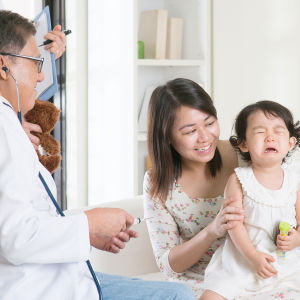Just in time for a safe summer, the Food and Drug Administration has now approved the emergency use of the remarkably safe and effective Pfizer-BioNTech vaccine for 12 to 15-year-olds. An advisory committee for the Centers for Disease Control and Prevention has now also voted to recommend the vaccine for this age group. Unfortunately, this vital step in getting American kids back to in-person school, sports, and socializing could be scuttled by parental hesitancy due to persistent misinformation about the COVID-19 vaccines.
We are already seeing troubling signs that a large segment of parents is in this camp. A recent survey by the Kaiser Family Foundation Vaccine Monitor found that many parents are showing reluctance to vaccinate their adolescent children. Only three in 10 parents of those aged 12-15 said they would immediately get their child vaccinated once it was approved, while nearly a quarter said they would definitely not allow their child to get the vaccine. Another quarter said they wanted to take a wait-and-see approach.
As a pediatrician, I find these worrisome results indicating that too many parents are lacking in the information they need to appropriately weigh the benefits and risks of vaccination.
Let’s start with the risks of failing to vaccinate.
While children endure a relatively low severe-disease rate from COVID-19 compared to adults, in fact, more children have died from SARS-CoV-2 infection than die from influenza in a typical season, or from chickenpox before we developed a vaccine.
Children are especially vulnerable to a new post-infectious inflammatory disease associated with the infection, Multiorgan Inflammatory Syndrome in Children (MIS-C), which can result in long-term cardiovascular disease and even death. They are also susceptible to so-called “long COVID”, which can result in neurologic and cardiopulmonary symptoms that can dramatically alter the life of a previously healthy individual. Vaccination is the surest way to prevent or mitigate these significant health risks.
Even parents willing to vaccinate have expressed concerns about the long-term effects of the vaccine on children. But once these vaccines are seen in the context of the many other vaccines we take for granted, their benefits again far outweigh the risks.
We have extensive safety data on the Pfizer vaccine. And while the vaccine may be relatively new, there are decades of clinical data on similar products using the same highly effective and safe platform. The same is true for concerns about side effects: adolescents may have similar, short-lived symptoms as adults as their immune systems build protection. It is a small price to pay to avoid the ravages of the disease and freely see their friends again.
We must also dispense with the argument that with most adults vaccinated, there is no need to also vaccinate children. Even if young children may not spread COVID-19 as readily as adults, left unvaccinated they will continue to be a reservoir of the disease. This will leave open the potential for break-through infections in the community, especially in those with compromised immune systems or waning immunity. The only way to prevent this risk is to reduce the circulation of the virus through vaccination of children and adults, alike.
Parents want to do what is best for their child’s health and welfare and this is certainly a time to listen to parent concerns. But as we begin to emerge from this challenging year, we must focus on helping the nation’s kids begin making up for lost education, rebuild their social lives, and regain mental well-being.
Our first step is arming parents with the full and accurate information they need to confidently say yes to giving their children the gift of vaccine immunity.


